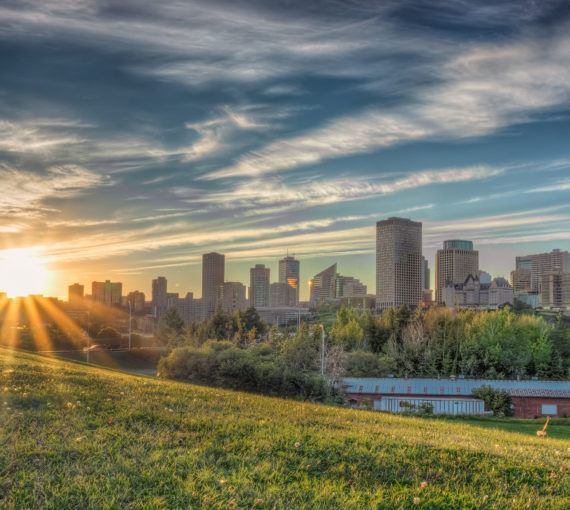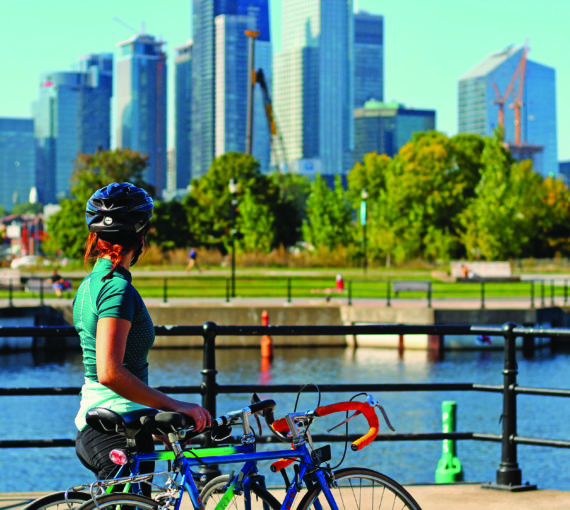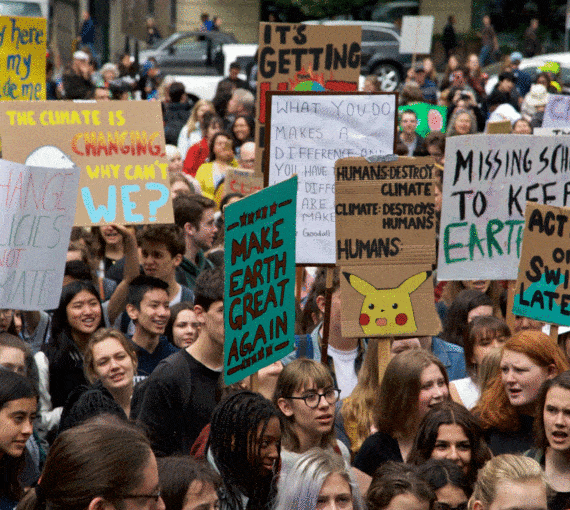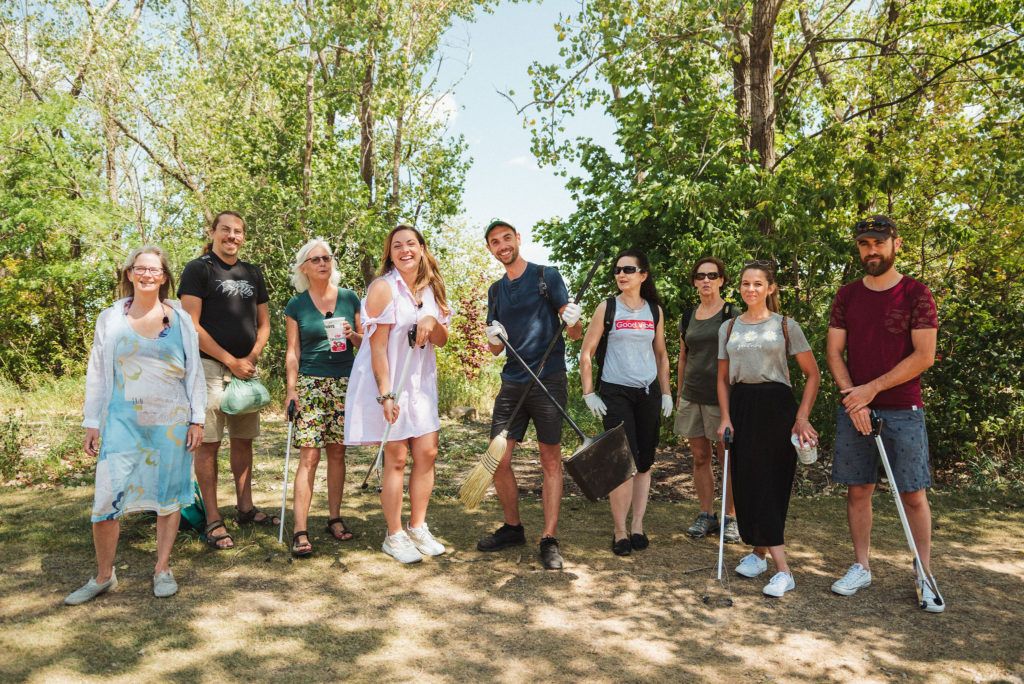
Collective action starts with the few and builds to the many. But sometimes smaller initiatives need a boost to get the attention they deserve. (Photo: Mathieu B. Morin)
Imagining the world we want and working to create it needs more than top-down policy change. We need collective action by many people in many communities.
Future Ground Network/Réseau Demain le Québec are online organizing hubs (one English, one French) that convene and mentor the environmental community. They amplify and accelerate the meaningful work of local grassroots groups in their communities and connect them to each other.
The networks provide:
- Monthly training webinars for community organizers, on topics including decolonization, anti-racism, transitioning beyond COVID-19, organizer burnout, how to have difficult conversations, government relations, campaign strategizing and more.
- Resource guidance, from how to recruit members and run effective meetings to ideas for action, fundraising and social media best practices.
- Recruitment and training of volunteer specialists to help with digital tool support, design, communications and grant-writing for community-led initiatives throughout the country.
- Access to digital organizing tools that help you organize and manage your supporter lists, launch petitions and letter campaigns, create events, host online meetings and more!
The project was piloted in Ontario and Quebec and launched nationally on February 10, 2021. Groups gather on the digital platforms to promote their work, start local initiatives, host events and push for policy change. At the time of writing, more than 150 groups were registered. That’s more than 3,000 people connecting with tens of thousands in their communities.
There’s truth to the saying, ‘Think globally, act locally.’ To resolve a planetary crisis like climate disruption, we need change from the top, but without localized support, that’s difficult to achieve.
David Suzuki
Rave reviews
Tasfia Ahsan, Echo Canada
“Invaluable tools and resources, thought-provoking webinars, and connections with other environmental initiatives throughout the country … a lot of potential for both individual and collective action.”
TASFIA AHSAN, ECHO Canada (Vancouver, B.C.)
Kathryn Aitken, Transition Notre-Dame-de-Grace
“Just being able to share our experiences — our successes and frustrations — is so valuable. Maybe we won’t all have to invent the wheel every time we undertake a project, knowing how others have done it.”
KATHRYN AITKEN, Transition Notre-Dame-de-Grace (Montreal, Quebec)
Maria Nestorovska, Peel Environmental Youth Alliance
“After hearing about how a lot of the other groups are meeting with politicians, we feel like larger-scale actions are possible! Your ‘difficult conversations’ webinar was the inspiration behind the climate dialogue we held with our community!”
MARIA NESTOROVSKA, Peel Environmental Youth Alliance (Mississauga, Ontario)
Niall O’Brien, Youth program participant
“The network has taught me so much about climate organizing — how to act, where to start and that we cannot just solve this problem by ourselves. We need to work together.”
NIALL O’BRIEN, Youth program participant (Toronto, Ontario)
Inspiration: Giant steps of local superheroes
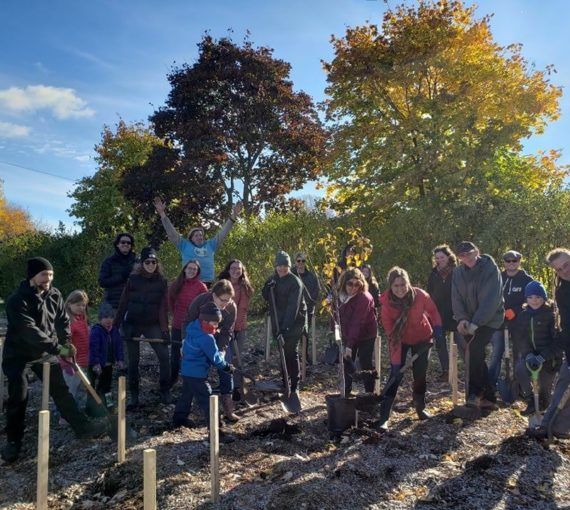
Sowing joy in Quebec City
Beauport, Quebec City resident Marie-Claude Fontaine inspired 14 other families in her neighbourhood to come together to create a “flyé” (extraordinary) green space at the end of her street.
Croque Ton Quartier (“bite” your neighbourhood) quickly became a happy hub of connection. Residents installed swings, a sandbox, games, a book exchange and a community garden. They made it easy and fun for people to meet and raised awareness about how urban agriculture can contribute to food security.
When COVID-19 restricted public gatherings, the group shifted to visiting neighbours from a distance — sometimes dressed up as clowns and unicorns — sounding the Croque-mobile horn to bring smiles and break the isolation.
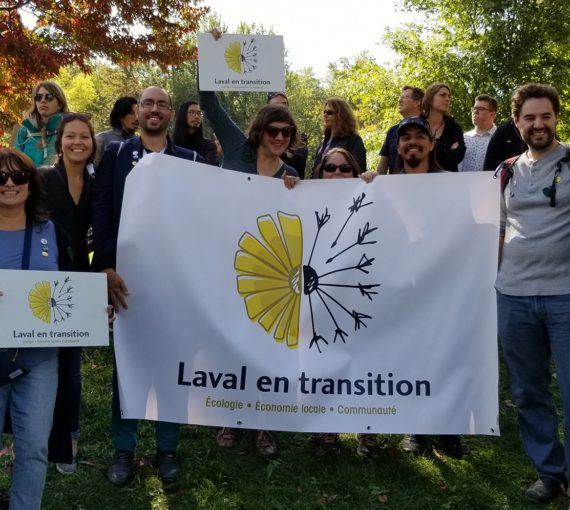
Mobilizing community-led change in Laval
Two proposed real estate megaprojects on Île Gagnon and Place Sainte-Rose inspired residents to come together to make a difference as Laval in Transition.
Spokespersons Alexandre Warnet and Geneviève Dagneau asked, “What are the criteria — public and private — that would attract citizens’ enthusiastic support for a real estate or land development project?”
They formed a grassroots committee with goals to reduce emissions, positively transform the community and help mitigate the climate crisis. It developed a social and environmental acceptability evaluation grid that takes into account economic, cultural and ecological issues — and brought it to decision-makers. And in August, 2020, Laval rejected the Île Gagnon real estate project.
Their approach is now inspiring other community-led movements, which are using the same grid to promote their aspirations to their municipalities.
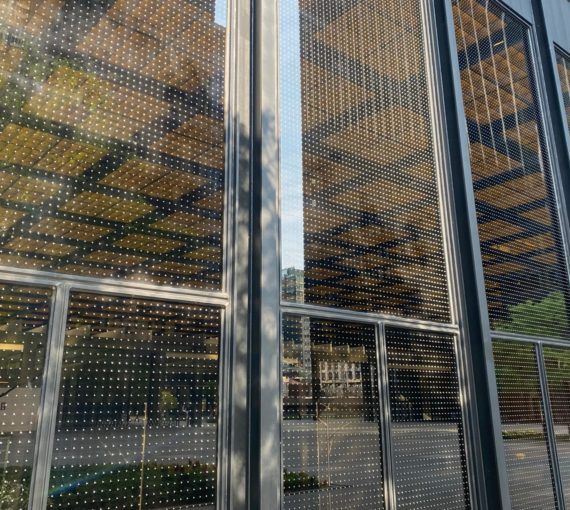
Making cities safe for birds
Sheri and Pearl met through Future Ground Network and launched Never Collide, a community-led movement to save city birds from window strikes (which kill 16 to 42 million birds yearly in Canada). The group’s first initiative was to campaign for TD Towers in downtown Toronto to apply bird-saving window treatments to their high-collision facades. After launching a successful letter-writing campaign and petition and winning the attention of local media, the group’s efforts paid off! TD Towers committed to making their windows bird-safe and completed its installation in summer 2021, which will help save hundreds of birds each year.

Spreading the learning
After attending a Future Ground Network screening and webinar about the Land Back movement with Aimée Craft and Danika Littlechild, Genevieve and David were inspired to carry their learning forward. They accepted Future Ground Network’s challenge to host a screening of their own. Council of Canadians Medicine Hat and Resilient Southeast Alberta shared this learning with their communities throughout Alberta, Saskatchewan and Manitoba and inspired a wider circle of organizers to take on more anti-colonial work.
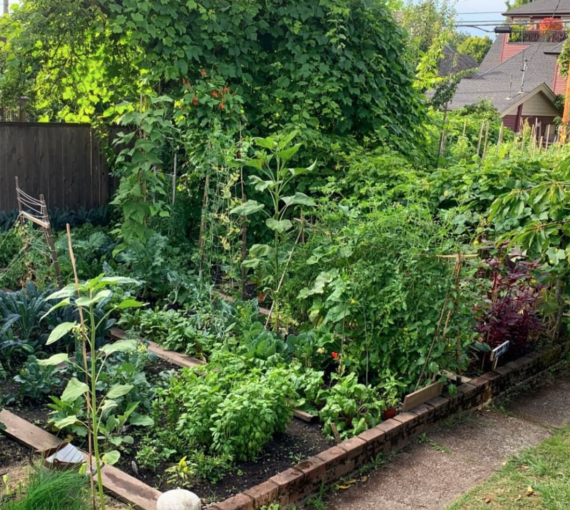
Sharing space for growth
Camille launched Food 4 Thought as a community-based gardening initiative educating novice apartment dwellers with a passion for learning how to grow organic food. She soon recognized a need for garden space. She matched apartment dwellers with little to no balcony space with local neighbourhood homeowners who had either a front or backyard garden space to offer to a committed, respectful gardener. In the 2021 growing season, Food 4 Thought connected 50 apartment-dwellers with homeowners with land to share.
Recognizing local excellence
Collective action starts with the few and builds to the many. But sometimes smaller initiatives need a boost to get the attention they deserve.
Our Montreal office launched its annual Prix Demain le Québec in 2014. The contest recognizes communities coming together to create innovative projects that protect the planet and build a healthy future.
On April 6, 2021 a pilot of the English version — the Future Ground Prize — kicked off in Ontario. In 2022, the contest expanded to include British Columbia.
Six prizes were awarded (three in Quebec and three in Ontario). Winners of the two Jury Prizes received $5,000 each and an online visit from David Suzuki. The two People’s Choice Prize winners received $2,500 each. Youth Awards recognize projects led by future green leaders — applicants from daycares, preschools and primary and secondary schools.
This project builds a narrative, with hundreds of community-led stories to inspire people to act. Because votes for the People’s Choice Prizes and Youth Awards were collected online, thousands of people reviewed the candidate projects.
Check out the winners: Future Ground Prize, Prix Demain le Québec.
It’s critical that people champion climate action in their communities and get others to take steps every day. Those little actions add up to a big difference.
David Suzuki
Activism education
During COVID lockdown, our organizers launched a youth-focused activism school offering online interactive multi-week programs on topics ranging from mobilizing a community to promoting self-care.
Those successes spurred another school for people of all ages from all over. Participants received training in strategizing, decolonization, recruitment, team building and leadership. In between sessions, they organized meetings with people in their neighbourhoods and/or municipalities interested in getting involved to make a difference.
As school was in session, students started their own projects and were able to get guidance during those first critical weeks. After “graduation,” many joined Future Ground Network/Réseau Demain le Québec.
Empowering people to get involved in their communities provides a path to positive local change and builds networks to help resolve major national and global crises.
David Suzuki
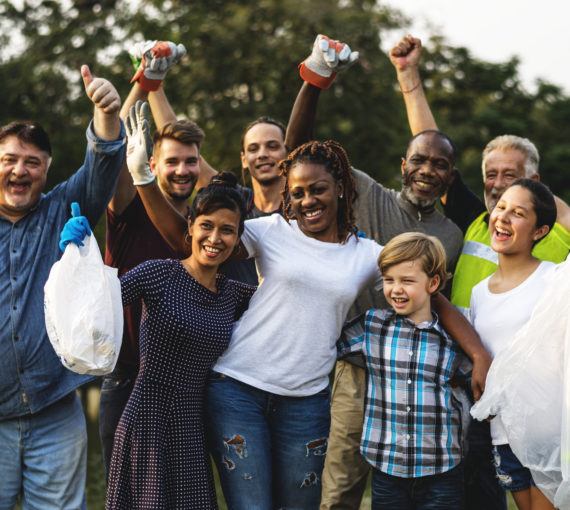
Register for activism school
Know someone who wants to act on the climate and biodiversity crises but doesn’t know where to start? Activism school helps break activist isolation and multiply the impact of collective action. Register for the 2022 session at Future Ground Network or Réseau Demain le Québec.
Finding Solutions features stories of caring people like you who make everything here possible. You can read, share, discuss, take action, join, donate. Whatever you choose, you’re helping protect Earth’s life-support systems. Thank you.
